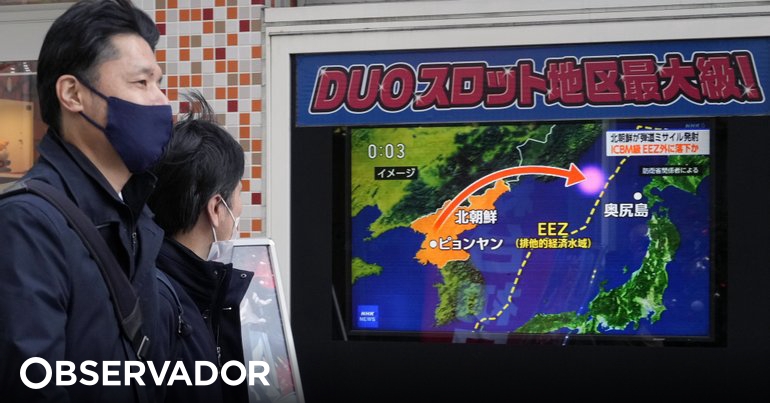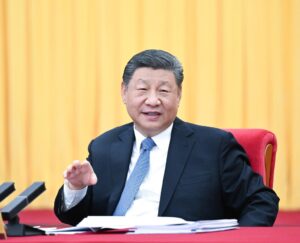
South Korea, the United States and Japan announced this Tuesday the launch of a system to share real-time information about North Korean missiles and a plan for regular exercises to counter Pyongyang’s military advances.
“The full operational capacity of the information sharing system in real time (…) through the results of a recent preliminary inspection and is currently operating normally,” the South Korean Ministry of Defense said in a statement.
The leaders of the three countries, Joe Biden, Yoon Suk-yeol and Fumio Kishida, from the United States, South Korea and Japan, respectively, agreed to implement the platform at a trilateral summit at Camp David in August, in a new step to strengthen security coordination between Washington, Seoul and Tokyo.
The United States already exchanged information separately with its allies in the Asian region, but until now there was no direct link between data between the three nationsdue to disputes between Japan and South Korea over the Japanese colonization of the Korean peninsula between 1910 and 1945.
With this initiative, “trilateral cooperation will be regularized and conducted in a more systematic and efficient way”, argued the parties, who also decided to establish a multi-annual plan to carry out trilateral military exercises from 2024, in a new step to strengthen deterrence against Pyongyang’s weapons tests.
The system’s launch comes a day after North Korea’s latest missile test, which launched a long-range ballistic projectile, its fifth in 2023, a record number which highlights the progress of the armament program and the military build-up in the region.
Seoul confirms that Pyongyang fired intercontinental ballistic missile
The North Korean regime claimed this Tuesday that the projectile launched was a solid-fuel Hwasong-18 intercontinental ballistic missile and said that leader Kim Jong-un “observed the launch on the ground” to “send a warning” to Washington and allies.
Seoul, Washington and Tokyo reiterated that they will continue to strengthen cooperation “to respond to regional challenges” and ensure security in the Indo-Pacific region.
After the failure of denuclearization negotiations with the United States of America in 2019, North Korea approved an armament modernization plan — which includes the installation of military satellites and the testing of numerous missiles — in addition to rejecting the recovery dialogue and having strengthened ties with China and Russia.
On the other hand, South Korea, Japan and the United States of America reinforced cooperation in security matters, with Washington increasing the periodic sending of strategic assets to the peninsula.
Source: https://observador.pt/2023/12/19/seul-washington-e-toquio-partilham-dados-sobre-misseis-norte-coreanos-em-tempo-real/

